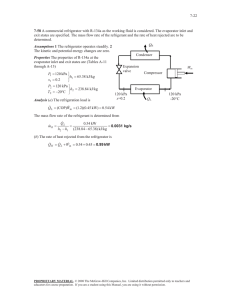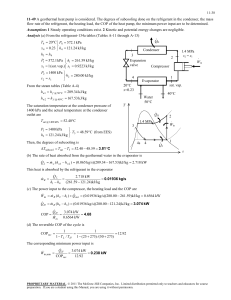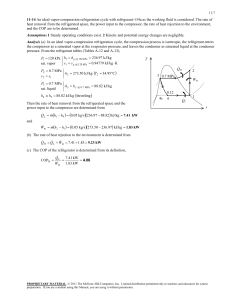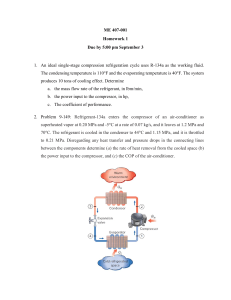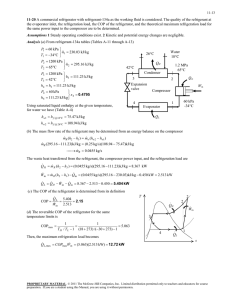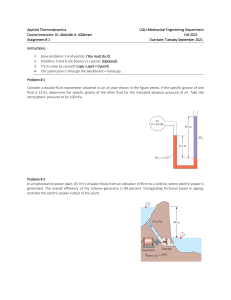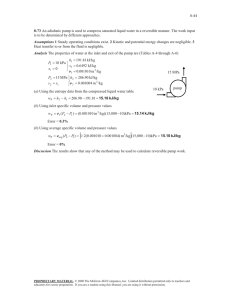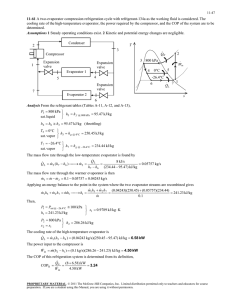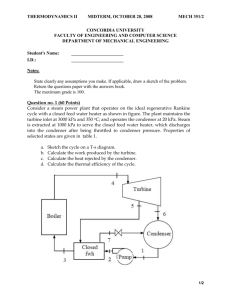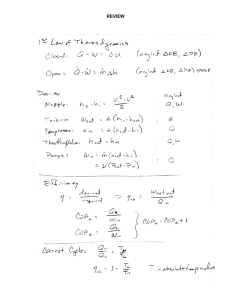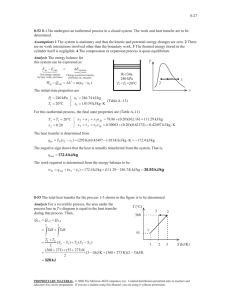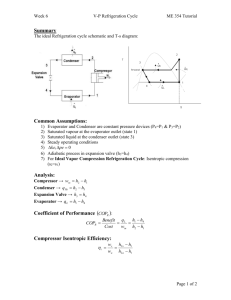consumption the COP of the heat pump and the rate... 6-56
advertisement
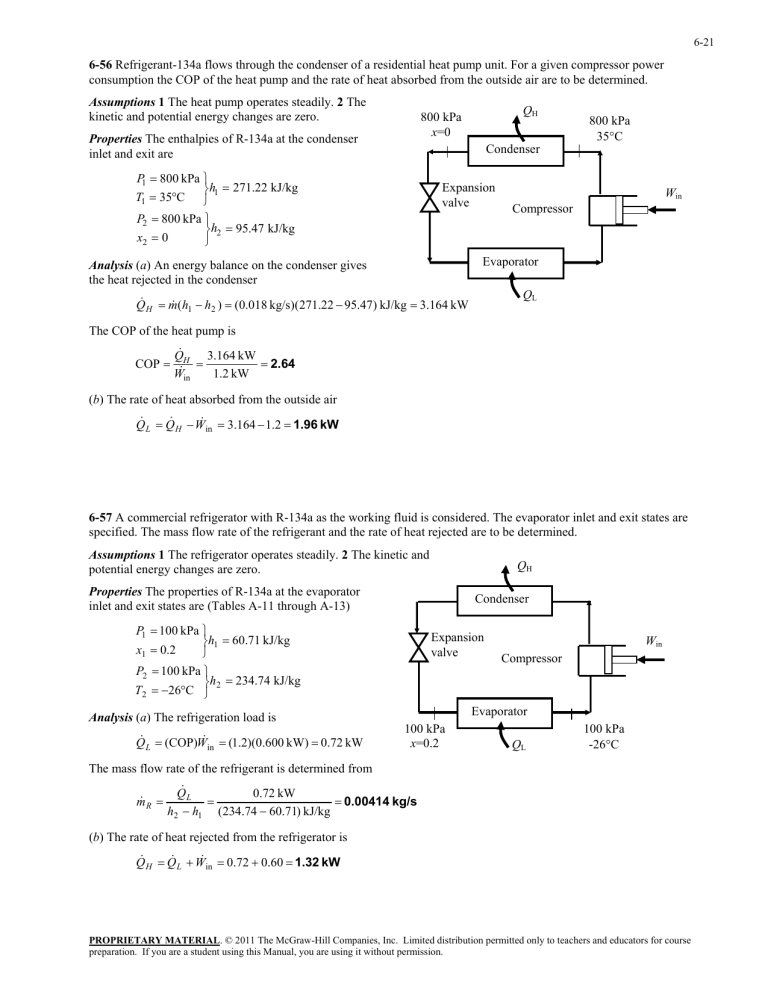
6-21 6-56 Refrigerant-134a flows through the condenser of a residential heat pump unit. For a given compressor power consumption the COP of the heat pump and the rate of heat absorbed from the outside air are to be determined. Assumptions 1 The heat pump operates steadily. 2 The kinetic and potential energy changes are zero. QH 800 kPa x=0 Properties The enthalpies of R-134a at the condenser inlet and exit are 800 kPa 35C Condenser P1 800 kPa h1 271.22 kJ/kg T1 35C P2 800 kPa h2 95.47 kJ/kg x2 0 Expansion valve Win Compressor Evaporator Analysis (a) An energy balance on the condenser gives the heat rejected in the condenser QL Q H m (h1 h2 ) (0.018 kg/s)(271.22 95.47) kJ/kg 3.164 kW The COP of the heat pump is COP Q H 3.164 kW 2.64 Win 1.2 kW (b) The rate of heat absorbed from the outside air Q L Q H W in 3.164 1.2 1.96 kW 6-57 A commercial refrigerator with R-134a as the working fluid is considered. The evaporator inlet and exit states are specified. The mass flow rate of the refrigerant and the rate of heat rejected are to be determined. Assumptions 1 The refrigerator operates steadily. 2 The kinetic and potential energy changes are zero. QH Properties The properties of R-134a at the evaporator inlet and exit states are (Tables A-11 through A-13) Condenser P1 100 kPa h1 60.71 kJ/kg x1 0.2 P2 100 kPa h2 234.74 kJ/kg T2 26C Expansion valve Compressor Evaporator Analysis (a) The refrigeration load is Q L (COP)W in (1.2)(0.600 kW) 0.72 kW Win 100 kPa x=0.2 QL 100 kPa -26C The mass flow rate of the refrigerant is determined from m R Q L 0.72 kW 0.00414 kg/s h2 h1 (234.74 60.71) kJ/kg (b) The rate of heat rejected from the refrigerator is Q H Q L W in 0.72 0.60 1.32 kW PROPRIETARY MATERIAL. © 2011 The McGraw-Hill Companies, Inc. Limited distribution permitted only to teachers and educators for course preparation. If you are a student using this Manual, you are using it without permission.
